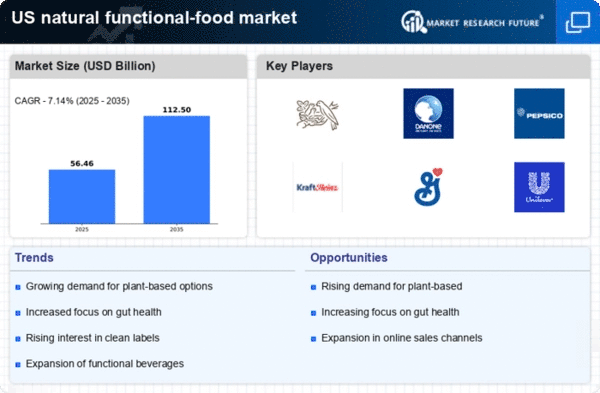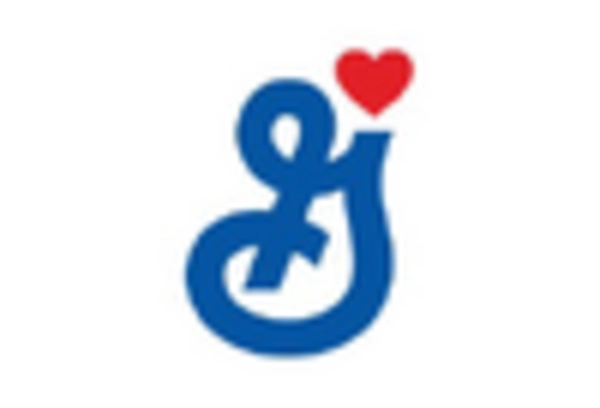E-commerce Growth
The rise of e-commerce is reshaping the landscape of the natural functional-food market. With the increasing prevalence of online shopping, consumers are more inclined to purchase health-oriented products through digital platforms. This shift is supported by market data, which shows that online sales of functional foods have surged by over 30% in recent years. E-commerce provides consumers with greater access to a wider variety of products, including niche and specialty items that may not be available in traditional retail settings. As a result, brands are investing in their online presence and digital marketing strategies to capture this growing segment of consumers. The natural functional-food market is thus evolving to leverage the benefits of e-commerce, enhancing convenience and accessibility for health-conscious shoppers.
Rising Consumer Awareness
The natural functional-food market is experiencing a notable surge in consumer awareness regarding health and nutrition. As individuals become more informed about the benefits of natural ingredients, they are increasingly seeking products that offer functional benefits, such as improved digestion and enhanced immunity. This trend is reflected in the market data, which indicates that the demand for functional foods has grown by approximately 20% over the past few years. Consumers are now more inclined to scrutinize labels and ingredient lists, favoring products that are perceived as healthier and more beneficial. This heightened awareness is driving innovation within the natural functional-food market, as companies strive to meet the evolving preferences of health-conscious consumers.
Aging Population Demographics
The demographic shift towards an aging population is significantly influencing the natural functional-food market. As the baby boomer generation ages, there is an increasing demand for products that support health and longevity. This demographic is particularly interested in functional foods that can aid in managing chronic conditions and enhancing overall well-being. Market analysis indicates that the segment targeting older adults is projected to grow by approximately 25% in the coming years. This trend presents opportunities for companies to develop specialized products tailored to the unique health needs of older consumers. Consequently, the natural functional-food market is adapting to meet the demands of this growing demographic, focusing on formulations that promote vitality and health in later life.
Innovative Product Development
Innovation plays a crucial role in the natural functional-food market, as manufacturers continuously develop new products to cater to diverse consumer needs. The introduction of novel ingredients, such as adaptogens and superfoods, has gained traction, appealing to consumers seeking enhanced health benefits. Market data suggests that the segment for functional beverages, including those infused with probiotics and vitamins, has expanded significantly, contributing to an estimated growth of 15% in this category alone. This drive for innovation not only enhances product offerings but also fosters competition among brands, compelling them to invest in research and development. As a result, the natural functional-food market is likely to witness a continuous influx of creative and health-oriented products.
Regulatory Support for Health Claims
Regulatory frameworks in the US are increasingly supportive of health claims associated with natural functional foods. The Food and Drug Administration (FDA) has established guidelines that allow manufacturers to communicate the health benefits of their products more effectively. This regulatory support is encouraging companies to invest in research that substantiates health claims, thereby enhancing consumer trust in functional foods. Market data indicates that products with verified health claims are experiencing higher sales growth, with some categories seeing increases of up to 18%. This trend not only benefits consumers by providing them with reliable information but also stimulates competition among brands to develop scientifically-backed products. Consequently, the natural functional-food market is likely to thrive as regulatory support fosters innovation and consumer confidence.
















